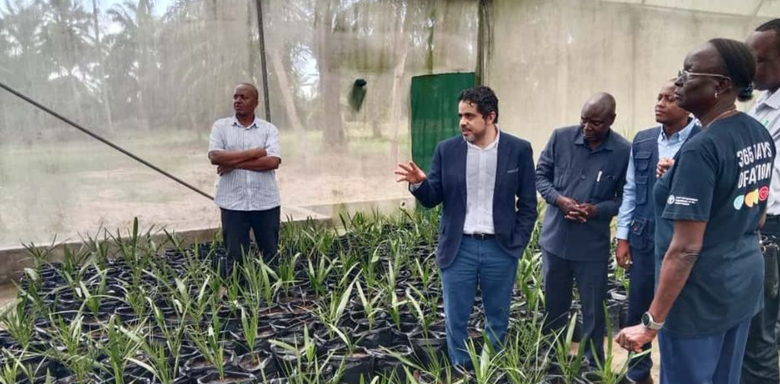Saudi envoy backs Tanzania’s date palm project

BAGAMOYO: THE Kingdom of Saudi Arabia has reaffirmed its commitment to supporting Tanzania’s ambitious date palm farming project designed to strengthen food security, boost livelihoods and promote climate resilience in semi-arid regions.
Speaking during a recent visit to the Food and Agriculture Organisation (FAO) project site at the TARI Chambezi Substation in Bagamoyo the Kingdom of Saudi Arabia Ambassador to Tanzania, Yahya bin Ahmed Okeish commended the significant progress achieved.
The envoy said the Kingdom of Saudi Arabia, through the King Salman Humanitarian Aid and Relief Centre (KSrelief) remains fully committed to helping Tanzanian farmers adapt to the impacts of climate change, diversify their crops and improve agricultural productivity.
“We will find a way to continue supporting you with both technical assistance and farmer empowerment, so that Tanzanians can produce high-quality date palm products,” said Ambassador Okeish.
FAO with financial support from the KSrelief of Saudi Arabia, is helping Tanzanian farmers adapt to climate change, improve food security and diversify their crops.
This is being done through the ‘Date Palm Farming for Food, Nutrition and a Better Life’ project.
The initiative aligns with Tanzania’s national development goals and contributes to global efforts toward Zero Hunger and Climate Action. By promoting sustainable farming practices, the project aims to enhance livelihoods and build resilience against climate challenges.
He further urged Tanzanians to take the initiative seriously, noting that date palm cultivation holds immense value in Saudi Arabia and has the potential to transform livelihoods in Tanzania’s semiarid regions.
FAO’s Country Representative in Tanzania Dr Tipo lauded Saudi Arabia for its unwavering support, saying the partnership has been instrumental in promoting sustainable date palm cultivation across Tanzania’s central and northern regions, particularly Dodoma and its neighbouring districts.
“We are grateful for Saudi Arabia’s full support and commitment. This partnership has laid the groundwork for a national expansion of the project and there is still much more to achieve together.” she said.
According to FAO project coordinator, Fadhili Mtengela, the project launched in January 2024 has already achieved key milestones.
A new tractor and related accessories have been delivered to TARI Hombolo, where land preparation is underway for demonstration plots in Dodoma.
In addition, 3,000 high-quality date palm seedlings including Ghannami male, Nawader, Barhi and Medjool varieties were imported from India, the United Arab Emirates and Egypt in April 2025.
After a successful three-month quarantine period under the supervision of the Tanzania Plant Health and Pesticides Authority (TPHPA), the seedlings were cleared for distribution.
“A further 700 seedlings recently arrived from the UAE, bringing the total to 3,700, are now undergoing quarantine at Chambezi,” he said.
Date palm cultivation, though not entirely new in Tanzania, remains largely untapped. The fruit is rich in fiber, essential minerals and vitamins offering significant nutritional value for children, expectant mothers and the elderly.
Each tree can yield between 40 and 150 kilogrammes of fruit annually for decades, with farmers earning between 5,000/- and 10,000/- per bunch.
Beyond direct farming, the crop’s value chain from nurseries to processing and marketing offers broad opportunities for employment and entrepreneurship, particularly for youth and women.
Environmentally, date palms are known to combat desertification, prevent soil erosion and restore degraded land key to Tanzania’s climate adaptation strategy.
With ongoing Saudi and FAO support, Tanzania is now positioned to become a leading producer of date palms in East Africa.





